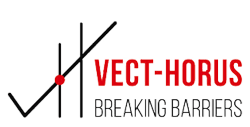RESEARCH FIELD(S) AND DISCIPLINES
Neurosciences
Biological sciences
JOB /OFFER DESCRIPTION
A 3-year full-time doctoral position is open at the Institute of Neuropathophysiology (INP), CNRS/Aix-Marseille University. The position is funded by the A*Midex
Initiative of Excellence and the student is expected to start on September-October 2023.
Alzheimer’s disease (AD) is one of the biggest scientific and socio-economic challenges of the 21st century. Currently, there is no cure. Aggregates of amyloid-β and tau protein, along with neuroinflammation/gliosis, are hallmarks of AD that lead to synaptic and neuronal loss as the basis for cognitive decline. The latter correlates closely with the brain distribution of tau aggregates, providing a strong incentive to investigate a link between tau accumulation and synaptic degeneration. Brain apolipoprotein E (ApoE), mainly produced by astrocytes, is essential for lipid transport to neurons and synaptic functions. ApoE4 isoform is the strongest genetic risk factor for AD and contributes to tau-mediated neurodegeneration. Determining how ApoE4 controls tau-mediated synaptic degeneration is thus essential to understand AD and develop efficient treatments, yet this requires fine characterization of ApoE4 functions at tau-damaged synapses with a synaptic resolution. Accordingly, the candidate will be involved in a cutting-edge ATIP-Avenir funded project aiming at elucidating molecular mechanisms that underlie synaptic degeneration in AD. To this end, the candidate will identify structural and functional synaptic changes caused by ApoE4 at tau-damaged synapses by combining super resolution microscopy, electrophysiology and behavioral tests. The project involves working with genetically modified mice and phenotypic analysis of brains using biochemical, molecular and cell biology, and histopathological approaches. Previous knowledge/experience on either Alzheimer’s pathogenesis, basic methods on biochemistry and molecular biology, cell culture, confocal/super-resolution microscopy, behavioral experiments and/or electrophysiology will be highly appreciated but is not mandatory.
The INP is a center of training and research that combines basic and translational research to study the organization, function and interaction of neural cells, as well as the molecular and cellular basis of major brain diseases. The INP is part of the Centre of Excellence in Neurodegeneration (CoEN) and offers an internationally competitive research environment with state-of-the-art facilities. The PhD student will be supervised by Dr. Maud Gratuze. The project will be developed at the Faculty of Medicine, located in the centre of Marseille, a few kilometers from the magnificent seafront, the Calanques National Park and the charm of inland Provence, all ideally suited to outdoor and cultural activities.
WHAT WE OFFER
Aix-Marseille Université doctoral contract (36 months)
- A monthly gross salary in the range of 2000 to 2300 euros before taxes
- All legal and social protection for job holders in France including Health care insurance, and retirement contribution.
- Attendance at weekly seminars featuring leading experts in the field, providing opportunities to network and learn from the best in the field.
- Through the NeuroSchool PhD program, the PhD candidate will have access to training dedicated to neuroscience and join a smaller and more targeted community. He/she will benefit from a variety of scientific events (basic and specialized courses, monthly tutored seminars, clinical training...), as well as professional, social and networking events in which they can actively participate in and/or organize (NeuroDays, special events).
- Opportunities to present at major international conferences, giving the student a platform to showcase their research and make valuable connections.
- Access to state-of-the-art equipment and technology, allowing the student to perform cutting-edge research and stay at the forefront of the field.
- Personal and professional development training, including opportunities for leadership and communication skills development, to prepare the student for a successful career in academia or industry.
TYPE OF CONTRACT: TEMPORARY
JOB STATUS: FULL TIME
HOURS PER WEEK: 35 to 39
APPLICATION DEADLINE: April 30th , 2023
ENVISAGED STARTING DATE: October 1st , 2023
ENVISAGED DURATION: 36
WORK LOCATION(S): Institute of Neuropathophysiology, CNRS/Aix-Marseille University, Marseille, France
QUALIFICATIONS, REQUIRED EDUCATION LEVEL, PROFESSIONAL SKILLS, RESEARCH REQUIREMENTS
To apply, candidates must hold an internationally-recognized Master-equivalent degree in biology, neurosciences or related fields. No restrictions of citizenship apply to the position. Previous knowledge/experience on either Alzheimer’s pathogenesis, basic methods on biochemistry and molecular biology, cell culture, confocal/super-resolution microscopy, behavioral experiments and/or electrophysiology will be highly appreciated but is not mandatory.
Preferable: comfortable with mouse handling
SOFT SKILLS
Autonomy, work ethic, critical thinking, adaptability, teamwork, motivation, curiosity, problem-solving
REQUESTED DOCUMENTS OF APPLICATION, SELECTION PROCESS
Suitable candidates are requested to submit:
- a Curriculum Vitae
- a presentation letter with declaration of interests and a description of your past achievements(max. 1 page)
- contact email of two potential references
- a scanned copy of your university academic transcripts in English
- a scanned copy of the Master degree, if available at the time of application
- a scanned copy of standardized English test results (TOEFL, TOEIC, ...) if available
WHERE TO APPLY
Applications should be sent to Dr. Maud Gratuze.



